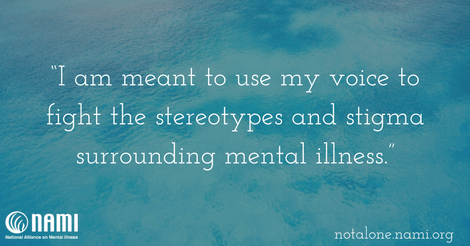August 29, 2017
By Jaimy Baek

Three years ago, I was diagnosed with borderline personality disorder (BPD) when I was first in the psychiatric ward at the local hospital. I added that to my list of mental health conditions that my psychiatrist had diagnosed me with: severe depression and anxiety, attention deficit hyperactivity disorder (ADHD) and posttraumatic stress disorder (PTSD).
Aside from me suffering the most with PTSD, I also struggle with BPD. Once I learned of my diagnosis, I researched it as much as I could. I asked mental health professionals about it, Googled it and read just about every article and book about it. I realized I had suffered from BPD since I was in pre-school. The symptoms of BPD fit me perfectly. I had a fear of abandonment, extreme mood swings, self-harm, suicidal behavior, disassociation, random fits of rage, dangerous impulsive behavior, isolation and a history and pattern of unstable relationships.
My parents have been nothing but understanding, compassionate and have made a treatment plan for me just in case I hit rock bottom. They ordered books about how to deal with people with BPD and studied up on it. Prior to my hospitalization, I avoided telling my parents how I was feeling and would cope by self-harm. Now, I talk to them when I am feeling worthless, ugly and like I don’t deserve to be alive. During these times, they stay close to me without suffocating me and patiently listen to me whenever I have something to say.
My close friends weren’t as surprised as I thought they’d be. They knew about my seeking mental professional help, so when I explained to them that I had BPD and what it was, they passed no judgement, checked up on me at least once a day and asked me if there was anything they could do to help me feel at least somewhat better when I was showing signs of hitting rock bottom.
Hitting rock bottom was a traumatizing and difficult situation. I allowed BPD to consume me completely. I let it control me and my life. I was struggling and in pain and all I could think was “I don’t deserve my life. I have such a great life but I fail to appreciate it because of BPD. I may as well just die and let someone else replace me.” It is then that I feel guilty, ashamed, like a failure and embarrassed for the pain and worry I caused my family and friends.
After being correctly diagnosed, learning about it and seeing an amazing therapist once a week, I am proud to say that I have been self-harm free for about two years and am slowly recovering. I no longer have fits of rage, extreme mood swings and am aware and active in suicide prevention.
Having mental health conditions has given me a purpose in life. I can relate to those who struggle with mental illness and offer them advice whenever they are feeling overwhelmed. I have gone to high schools and spoken to them about my struggles and difficult times. I also speak out about my experience with suicide, hoping that any student who does not feel 100%, recognizes that and seeks help. My goal in life is for people to feel less alone and address any issues people with mental health conditions have.
I have come a long way from the time I first time I sought out help for my mental health. I know that I will continue to have days where I don’t want to get out of bed, feel as though the world is too much to handle and just want to disappear and leave all my responsibilities. I fight those feelings with coping strategies I learned from my therapist and making sure I take my medication.
I am finally at a place where I am stable, logical, rational, aware of those around me and able to recognize my suicidal ideations are nothing but a mere feeling and the urge to just grab a sharp object is not the way to go. There is so much more to my life. I am alive and well for a reason. I am meant to use my voice to fight the stereotypes and stigma surrounding mental illness. I am meant to live.
Submit To The NAMI Blog
We’re always accepting submissions to the NAMI Blog! We feature the latest research, stories of recovery, ways to end stigma and strategies for living well with mental illness. Most importantly: We feature your voices.
LEARN MORE